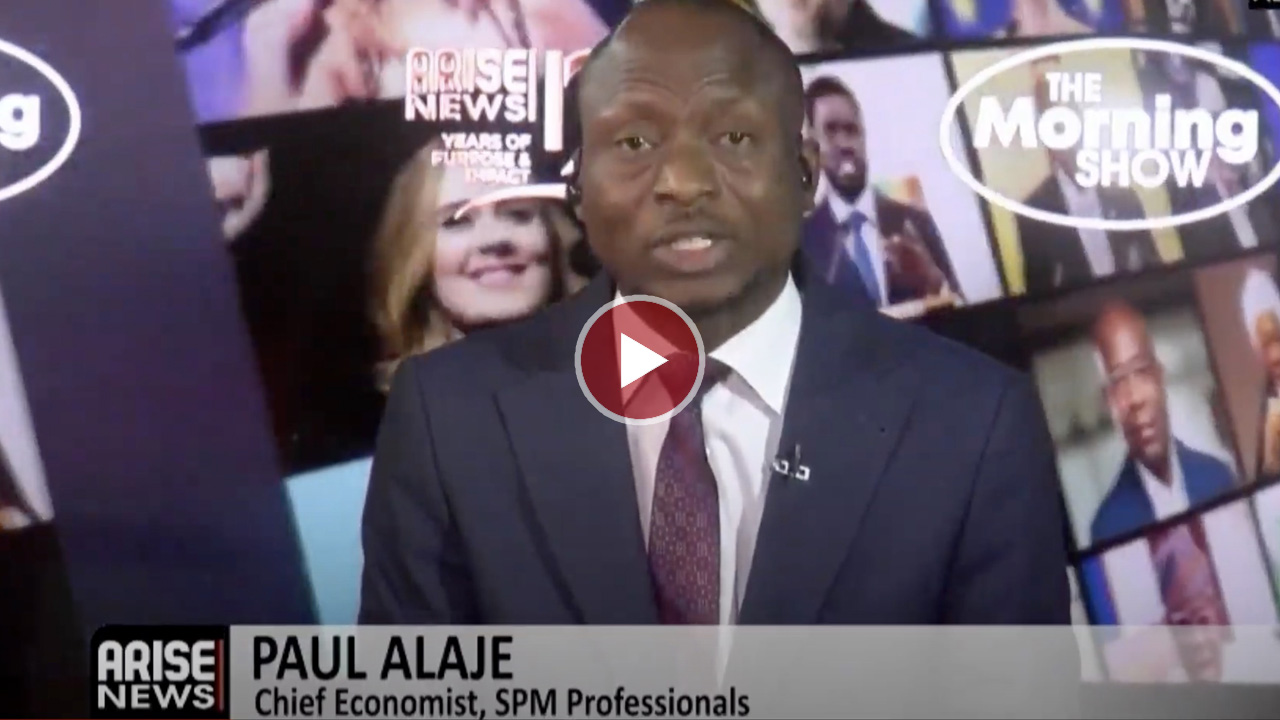

Economist and SPM Professional Paul Alaje has issued a stark warning about Nigeria’s escalating debt profile, emphasising the urgent need for prudent economic reforms to avoid a fiscal crisis.
Alaje in a wide-ranging discussion on debt sustainability with ARISE NEWS on Tuesday, outlined three critical parameters for assessing a country’s borrowing health, debt-to-GDP ratio, debt service-to-revenue ratio, and the comparative growth rates of debt and GDP.
“We’re clearly on the brink,” Alaje said, referring to Nigeria’s debt-to-GDP ratio. “The law says 40% is the cap, but we’re at 39.4% after rebasing. That’s dangerously close.”
He noted that while the debt-to-GDP ratio appears manageable on paper, the country’s debt service-to-revenue ratio tells a more alarming story. “We used to spend 98% of our revenue just servicing debt,” Alaje explained. “Now it’s about 70–74%, still more than double the acceptable benchmark of 33%.”
Alaje also highlighted a disturbing trend, Nigeria’s economy grew by only 4% last year, while debt rose by nearly 23%, based on figures from the Debt Management Office. Ideally, he said, debt should grow at no more than a quarter of GDP growth.
Beyond the raw numbers, he raised concerns about the ineffective use of borrowed funds. “If the debt was truly impacting the economy, we’d see real growth and infrastructure deployment not just in Abuja and Lagos, but across the country.”
He warned that if current trends persist, Nigeria’s total debt could balloon to ₦200 trillion by 2027, possibly pushing debt servicing back up to 90% or more of national revenue.
Alaje, whose postgraduate thesis focused on debt and its economic implications, urged a careful distinction between local and foreign borrowing. He explained that high interest rates in the local market encourage banks to lend to the government instead of the private sector, crowding out business investment.
“Banks prefer buying treasury bills they’re low-risk. That means fewer loans to businesses, which leads to more poverty and unemployment.”
Pointing to the dangers of foreign debt in an unstable currency environment, “In the last two years, the naira has dropped from under ₦500 to over ₦1,500 per dollar. That’s a 300% decline. We can’t print our way out of debt like the US or EU.”
On the issue of alternatives to borrowing, Alaje said the government must refocus its budget priorities, calling for a reversal of the current trend where over 70% of spending goes to recurrent expenses like salaries and overhead.
“We need to flip the ratio. Spend 60% on capital projects, and 40% on recurrent expenditure not the other way around,” he advised. “Too much money goes into running government. It’s excessive.”
He emphasised that Nigeria has untapped revenue opportunities that don’t involve overtaxing the poor, There are revenue windows we haven’t maximised. We need to collect better, not collect more from the same people.”
Alaje also critiqued the idea that inflation is easing, attributing the apparent decline to statistical manipulation rather than actual market relief. “They changed the base year. That’s why inflation looks like it dropped from 34% to 24%. Prices didn’t fall go to the market and see for yourself,” he said. “We’re comparing apples and bananas.”
Looking ahead, Alaje expressed doubt that Nigeria will reach its goal of becoming a $1 trillion economy by 2030, unless the country achieves a consistent 17% annual GDP growth a far cry from the current 4%. “Unless we rebase the economy three or four more times or massively increase productivity, we won’t get there.”
He concluded by urging the government to focus on public infrastructure, education, energy, and healthcare the real factors that lift citizens out of poverty and drive meaningful growth.
“The real question is, What are we spending borrowed money on? Until we fix that, the debt will only worsen our problems,” Alaje said.
Erizia Rubyjeana



